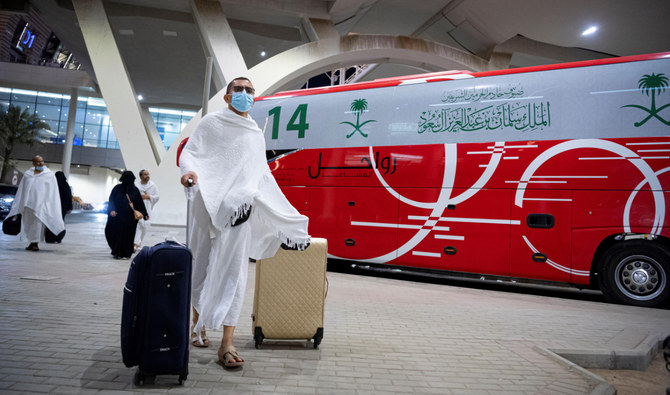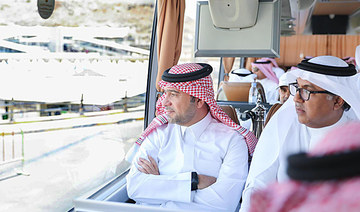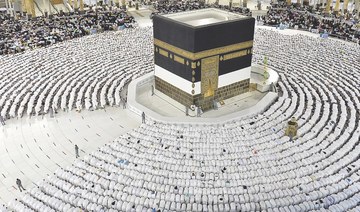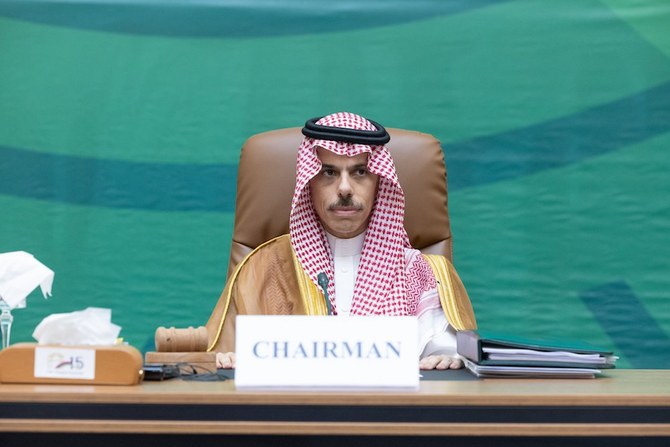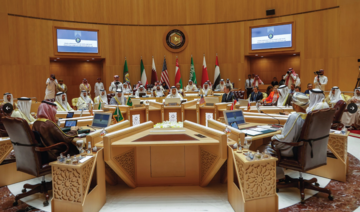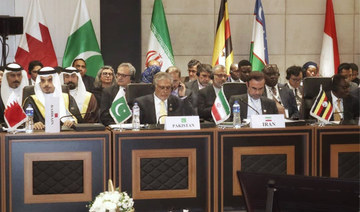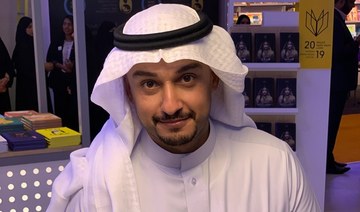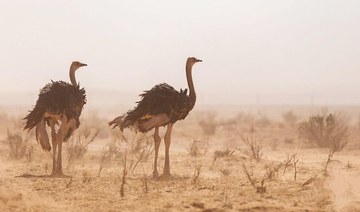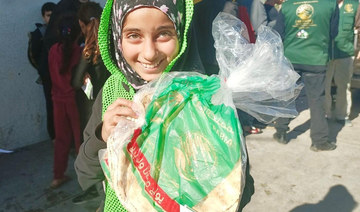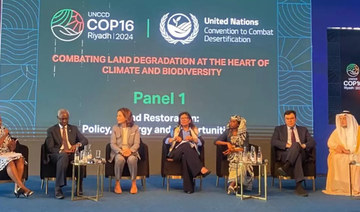JEDDAH: Hajj is an annual religious pilgrimage to the holy city of Makkah undertaken yearly by millions of Muslims worldwide. It occurs in the 12th month of the Islamic lunar calendar, called Dhul Hijjah, between the eighth and 13th days of the month.
This year, Hajj takes place from approximately July 7 to 12. Taking part in the pilgrimage at least once in their lifetime is a major obligation for all able-bodied Muslims of financial means, and between 2 million and 3 million people participate in the six-day ritual every year.
This year, 1 million pilgrims will flock to the holy city, 85 percent of them traveling from abroad for the first time following a two-year hiatus brought about by the COVID-19 pandemic and attendant restrictions that prevented them from performing the ritual.
To ensure a smooth and safe journey for the pilgrims, the Saudi government has announced a series of entry conditions.
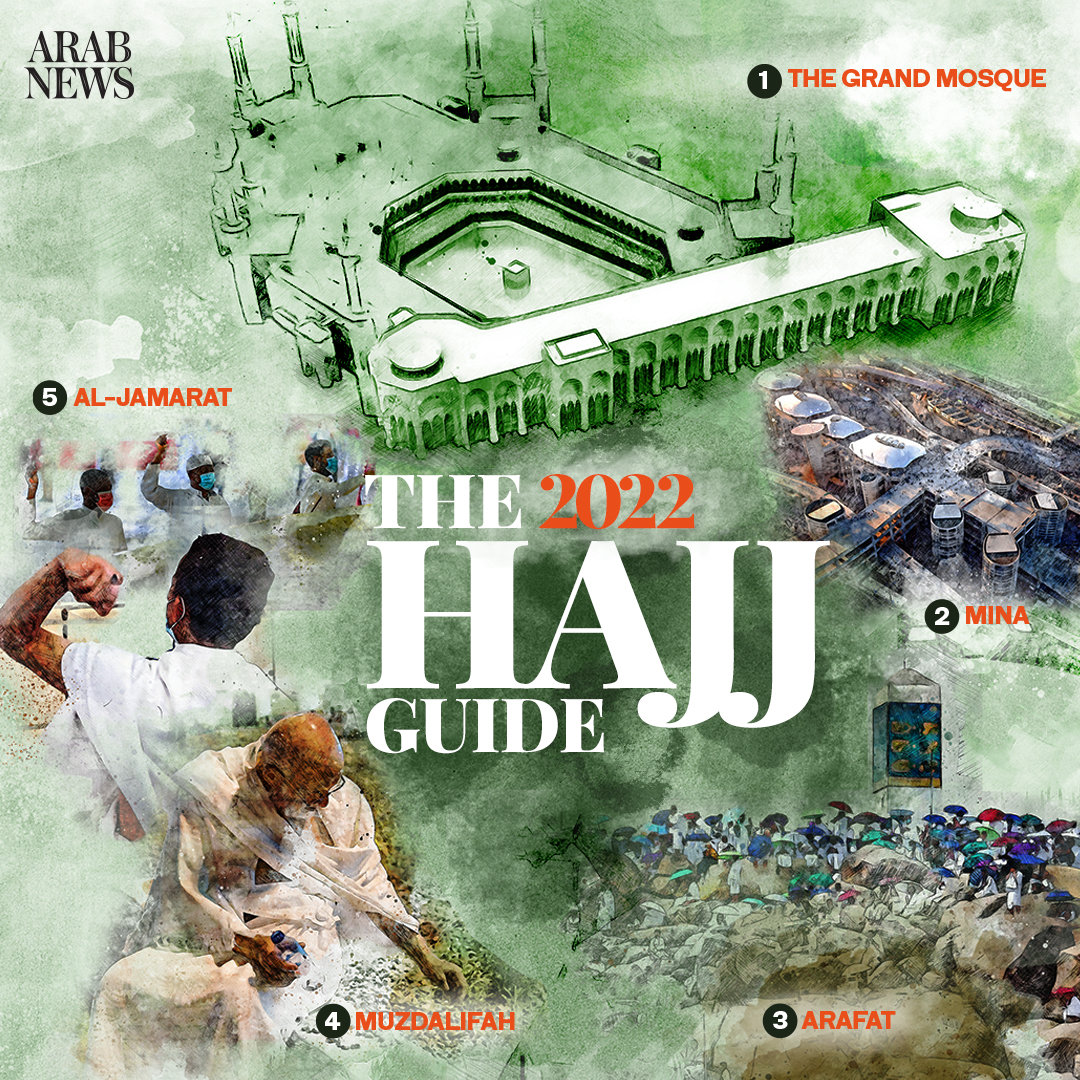
Pilgrims who wish to perform Hajj must be under 65 years old and fully vaccinated against COVID-19 with a booster. They must also present a negative PCR test taken 72 hours before departure for the Kingdom, and priority will go to those who have not performed the ritual before.
Following Prophet Muhammad, for 14 centuries, pilgrims began their journeys in a spiritual state of purity and devotion, also known as Ihram, which is the combined sacred act of Niyyah and Talbiyah necessary to perform Hajj. It is the innate intention to commit an act of worship, while Talbiyah is a special prayer said in supplication to attain Ihram.
After entering Makkah, pilgrims perform the welcome tawaf, circling the Kaaba seven times in a counterclockwise direction, starting at the Black Stone. They then head to the hills of Safa and Marwa, where they perform saee, which is the act of going back and forth between the two hills seven times.
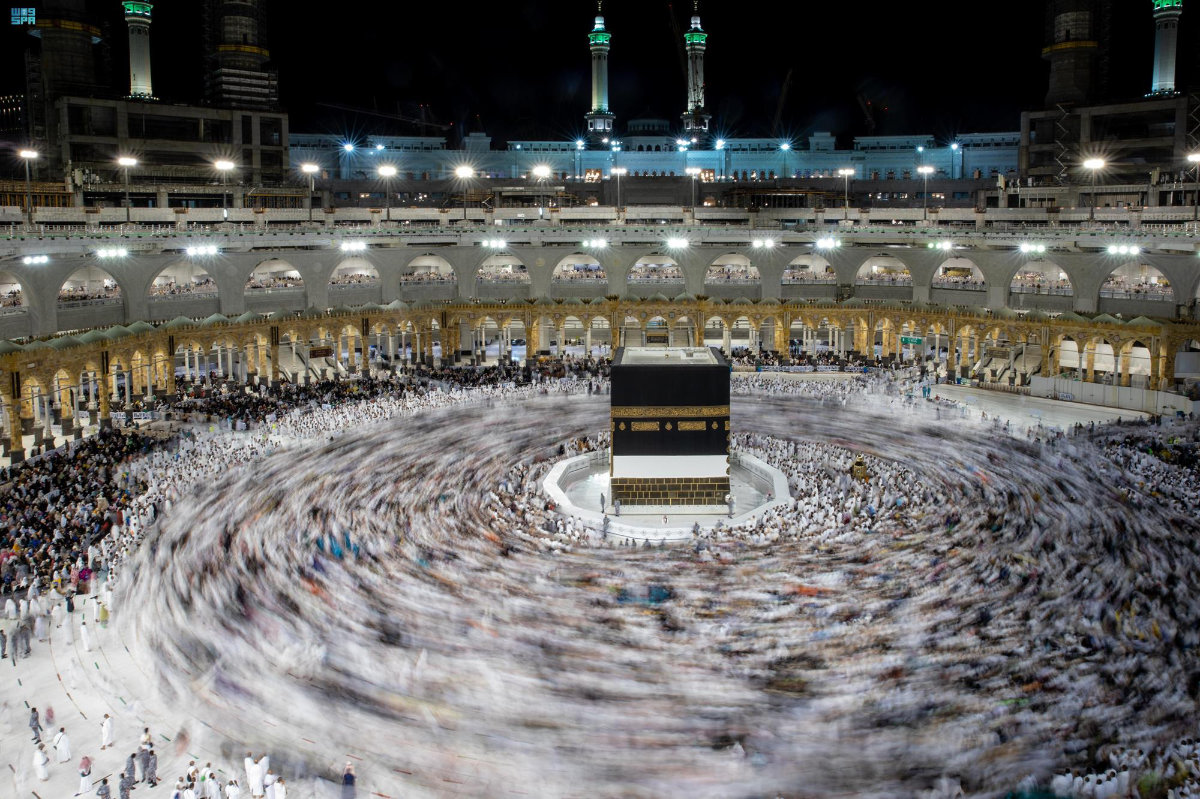
Pilgrims circumambulating the Kaaba in Makkah are shown in this slow shutter speed and long exposure shot taken on July 6, 2022. (SPA)
Pilgrims then travel to Mina, an area of 20 square kilometers nearly five kilometers away from the Grand Mosque in Makkah, on the eighth day of Dhul Hijjah, also known as Yom Al-Tarwiyah, where they will stay and fill their day and evening with prayers and supplications, resting and consuming water ahead of their long, perilous journey.
On the second day of Hajj, pilgrims travel to Mt. Arafat, 20 kilometers away. The day is devoted to prayer and supplications as they observe duhr (noon) combined with asr (afternoon) prayers until sunset.
Day of Arafat is considered the most critical day for pilgrims and the millions not performing. It is the day that, “atones for the sins of the preceding and coming (Muslim) year” and is the best day for worship and supplication in the entire year.
After sunset, pilgrims descend from Mount Arafat and make their way to Muzdalifah for isha (night) prayers, collect pebbles no larger than the size of a fingertip ahead of the stoning ritual on the next day, and rest until midnight or dawn, when they will make the long journey back to Mina for the final steps of Hajj, the stoning ritual at Jamarat Al-Aqabah.
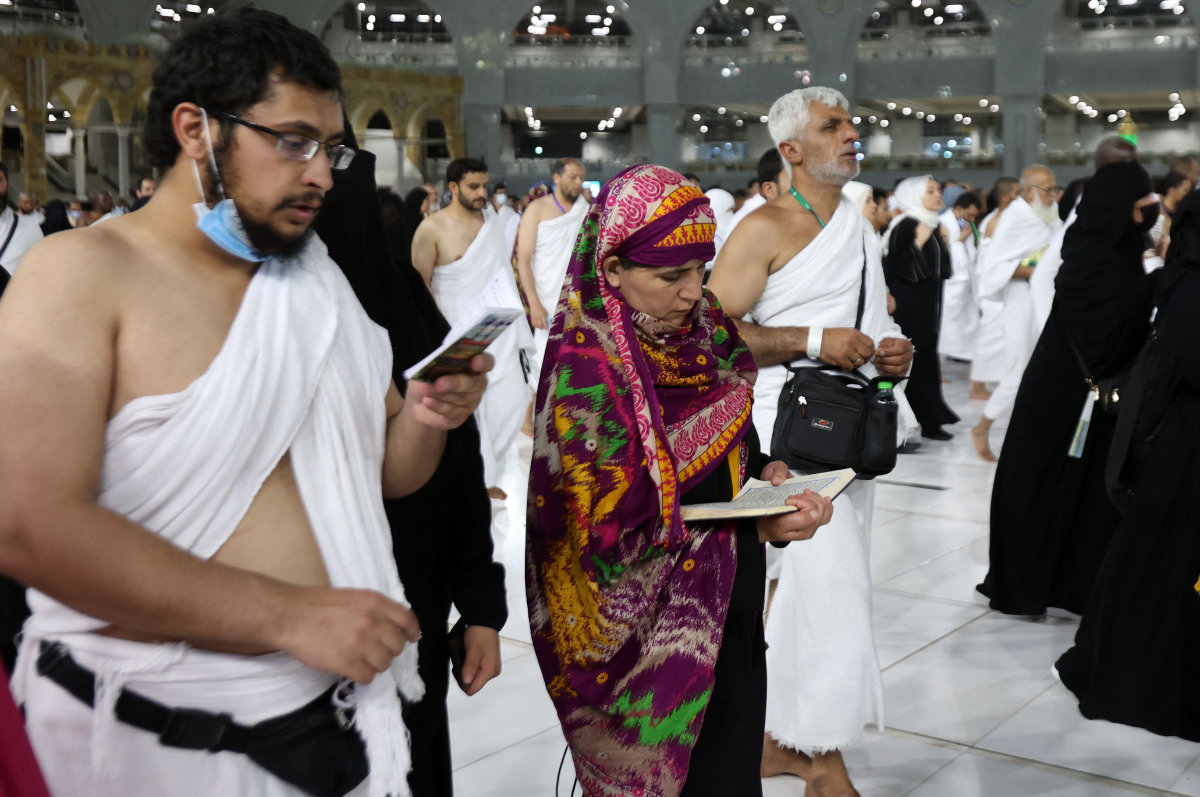
A million fully vaccinated Muslims, including 850,000 from abroad, are allowed at this year's Hajj after two years of drastically curtailed numbers amid the pandemic. (AFP)
On the third day of Hajj, Eid Al-Adha, pilgrims stone the Jamarat Al-Aqabah, or the big pillar, a place where the Prophet Ibrahim threw seven pebbles at the devil. After doing so, pilgrims change from their Ihram; sacrificial animals are slaughtered, and men cut or shave their heads while women cut a fingertip’s length of hair to commemorate the end of the Hajj pilgrimage.
For three days, known as Ayyam Al-Tashreeq, pilgrims stay in Mina and perform the stoning of the other two pillars, Al-Jamarah Al-Wusta and Al-Jamarah Al-Sughra.
With years of preparations ahead of the mass gathering, Saudi Arabia’s authorities undergo major planning every year to control the crowds, dividing a large number of pilgrims into groups and designating specific timings and routes to reach the bridge where the pillars are located.
Thousands of volunteers, military, law enforcement, and health personnel will be on the ground to assist pilgrims in what many believe is their sacred duty to serve the guests of God in the holiest and most sacred of journeys for a Muslim.
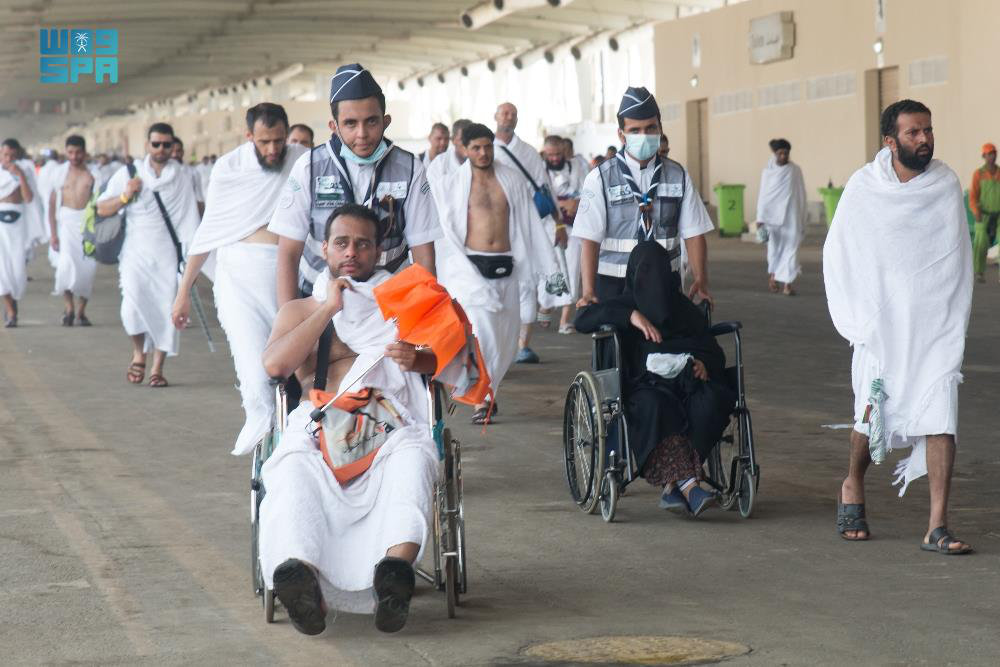
Saudi scouts have been assigned to assist the elderly and infirm pilgrims in moving around the holy sites in Makkah to perform the Hajj rituals. (SPA)
Utilizing the power of technologies, Saudi Hajj authorities are including the pilgrims’ smart ID again this year to render the transport of the “visitors of Allah” easier and to ensure their fast arrival to their locations and tents, whether in Mina or Arafat, with robots with touch screens available to explain rituals explained in 11 languages.
The Ministry of Hajj and Umrah, in collaboration with the General Authority for Awqaf, launched 13 detailed e-manuals offering advice to pilgrims from around the world on a variety of topics in 14 languages, including French, Turkish, Persian, Urdu, Russian, and Amharic, which are compatible with all phone operating systems and can be reached by visiting guide.haj.gov.sa.
In a video shared on Twitter, the Ministry said: “These guiding e-manuals are interactive, and include Shariah and Islamic law, procedural, organizational and health directives which pilgrims will need during their Hajj journey.”










